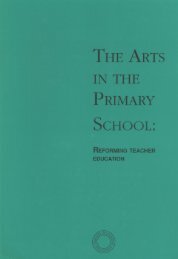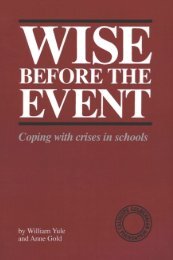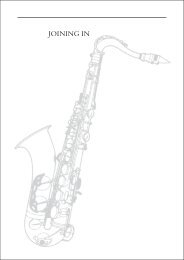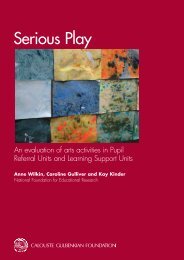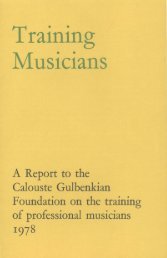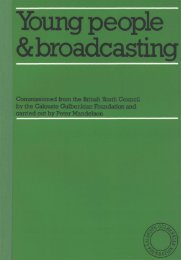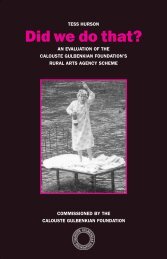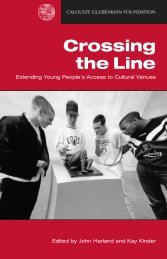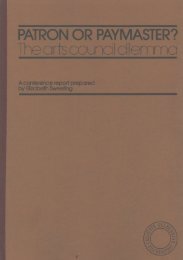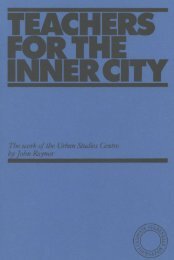The Arts in Schools - Calouste Gulbenkian Foundation
The Arts in Schools - Calouste Gulbenkian Foundation
The Arts in Schools - Calouste Gulbenkian Foundation
- No tags were found...
You also want an ePaper? Increase the reach of your titles
YUMPU automatically turns print PDFs into web optimized ePapers that Google loves.
to and an understand<strong>in</strong>g of certa<strong>in</strong> values: tolerance, freedom,equality and a respect for other people <strong>in</strong>clud<strong>in</strong>g a regard forthe excellent and a disda<strong>in</strong> for the shoddy and the secondrate.For, even if it is true that economics demand that ourpupils be schooled, it is also true that parents and societywant them educated. For all of these reasons, the schoolcurriculum must provide for development and work <strong>in</strong> thebalanc<strong>in</strong>g activities of art, music, literature, dance, drama andmovement.27 Other <strong>Arts</strong> activities have other beneficial effects. First, they canoutcomes help to develop qualities and abilities that have very practicalof the arts applications: grace, poise and balance <strong>in</strong> gesture and movement;sharpness of vision, hear<strong>in</strong>g and touch; a high degreeof co-ord<strong>in</strong>ation between hand and eye; an ability to expressoneself <strong>in</strong> precise terms. Second, the visual arts, drama,dance, and music, for example, can have valuable therapeuticfunctions <strong>in</strong> the treatment of some physical and/or emotionaldisorders (see Chapter 6). Certa<strong>in</strong>ly, the arts have been usedto beneficial effect <strong>in</strong> schemes of therapy <strong>in</strong> hospitals andcl<strong>in</strong>ics. Third, there are the opportunities they provide forre-creation of the <strong>in</strong>dividual, <strong>in</strong> giv<strong>in</strong>g him or her differentperspectives and challenges away from the pre-occupationsof the everyday bus<strong>in</strong>ess, <strong>in</strong>dustrial or domestic worlds.28 <strong>The</strong> arts We must emphasise here that we do not see the importanceandof the arts only <strong>in</strong> terms of a much-discussed need nowadaysrecreation to provide 'education for leisure'. <strong>The</strong>re are two reasons forthis. First, the arts are of central importance to humanbe<strong>in</strong>gs whatever the social and economic circumstances. <strong>The</strong>yare not to be seen simply as pastimes, whose importance<strong>in</strong>creases as the opportunities for 'real' work decl<strong>in</strong>e. Forthe reasons we have given, although they are, <strong>in</strong> an importantsense, recreative, to associate them only with leisure isto set them apart from the 'serious' aspects of life withwhich they are <strong>in</strong>timately <strong>in</strong>volved.Second, whether several million long-term unemployedmen and women will consider themselves to be leisuredrema<strong>in</strong>s to be seen. Economically and psychologically theneed <strong>in</strong> our culture to work is so deeply rooted that thelong-term consequences of unemployment on the scale now<strong>in</strong> prospect are hard to envisage. It is easier to see that theequation of less work with more leisure is simplistic. <strong>The</strong>arts are not a palliative for unemployment. By <strong>in</strong>troduc<strong>in</strong>gpupils to these possibilities <strong>in</strong> our schools, however, wemay help them to prepare more fully for future problems,opportunities and needs while open<strong>in</strong>g a wide spectrum of<strong>in</strong>terests <strong>in</strong> the present.26



